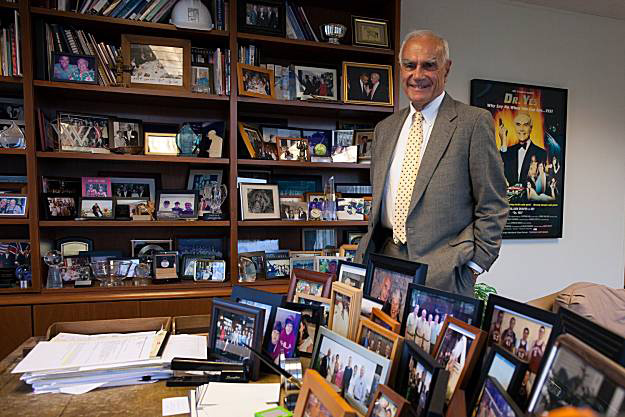GTS: William Draper and his Startup Book
In addition to the recent GTS speakers list, here is some more information about William Draper — veteran venture investor and his new book «The Startup Game». He will take part in the Day 3 of the Symposium at Panel VII: The Start-Up Game
The 8th Annual Global Technology Symposium will be held March 23-25, 2011 at the exquisite Rosewood Sand Hotel.
William Draper is one of the West Coast’s first venture capitalists. His passion for helping startups get off the ground runs deep in the family. He is the second of three generations of venture capitalists — his father founded what is recognized as the first venture capital firm in the West. And Draper’s son Tim is founder of the VC firm Draper Fisher Jurvetson.

In his just-published book, «The Startup Game» Draper shares his life-stories along with other lessons from his 40-plus years in the venture capital industry. The book arrives during a challenging time for the VC industry — fundraising continued to decline in 2010, hitting its lowest level in seven years.
He founded Sutter Hill Ventures in Palo Alto, backed winners like Activision, LSI Logic, Skype and OpenTable, but missed the boat on Yahoo. Draper also draws from his experiences as president and chairman of the U.S. Export-Import Bank and as head of the United Nations Development Program.
The San Francisco Chronicles recently chatted with Draper, 83, at the Draper Richards LP offices in downtown San Francisco.
What do you think are the biggest misperceptions about starting a business by today’s entrepreneurs?
Very often they overestimate the size of the market that their product or service will reach, and underestimate what it takes in the way of a timeline (and) a team. Sometimes they make the mistake of thinking they can do everything themselves.
The best entrepreneurs start right out thinking, «I’ve got to hire people better than I am.» I think the misconception that they also have is that things will take care of themselves and that the competition will stay the way it is. Nothing stays the same. So the inflexibility becomes a problem.
I imagine that during your lifetime, you’ve probably come across thousands of entrepreneurs — what sets the top 5 percent apart from the others?
Brainpower. Energy level. How fast a guy walks down a street is a good tip-off very often about energy level. Vision. Envisioning the future isn’t easy to do. Also, the ability to attract other people to work with them. The charm factor is there.
Amid all of your startup successes, it seems from reading your book that you’re actually most proud of your role in venture philanthropy.
Yeah, I didn’t have that in mind a dozen years ago. But it was after our significant success in India that Robin Richards (general partner of Draper Richards LP) and I decided that we should give a lot of that back. This was such a natural to try to help young entrepreneurs who wanted to go into the social world and sacrifice the options and the idea of becoming big multimillionaires.
We’ve done about 30 of these where we give them $100,000 a year for three years and then they’re on their own. But we also give them a lot of coaching, so we spend a lot of time and money and effort on getting them shaped up for the next rounds of capital, building up their board, building up their staff and helping them in any way, just the way we do in venture capital.
Venture capital is not all about money, it’s really mostly about building a company with the entrepreneurs, who do the heavy lifting.
You got to witness the birth of Silicon Valley — where do you think it’s headed next? To a degree, it’s not the appropriate name for the area anymore.
It would be better if it were called Creative Valley. Or Vision Valley.
I think it’s headed for more and more success, but its success will be less and less dominant. There are going to be Silicon Valleys in Beijing, Moscow and Brazil. It will always be the mother church … but there’s going to be so much more going on in other parts of the world around good technology.
So, how often do you say no to entrepreneurs? (Referring to the «Dr. Yes» movie poster — A mock movie poster on the office wall of William Draper, features him wearing a tuxedo and holding a gun. The poster, a parody of the James Bond flick «Dr. No,» shows him smiling under the title, «Dr. Yes.»)
I say no far more often than I’d like to. For every hundred entrepreneurs, we say yes to four or five. Saying no is the worst part of the job.




